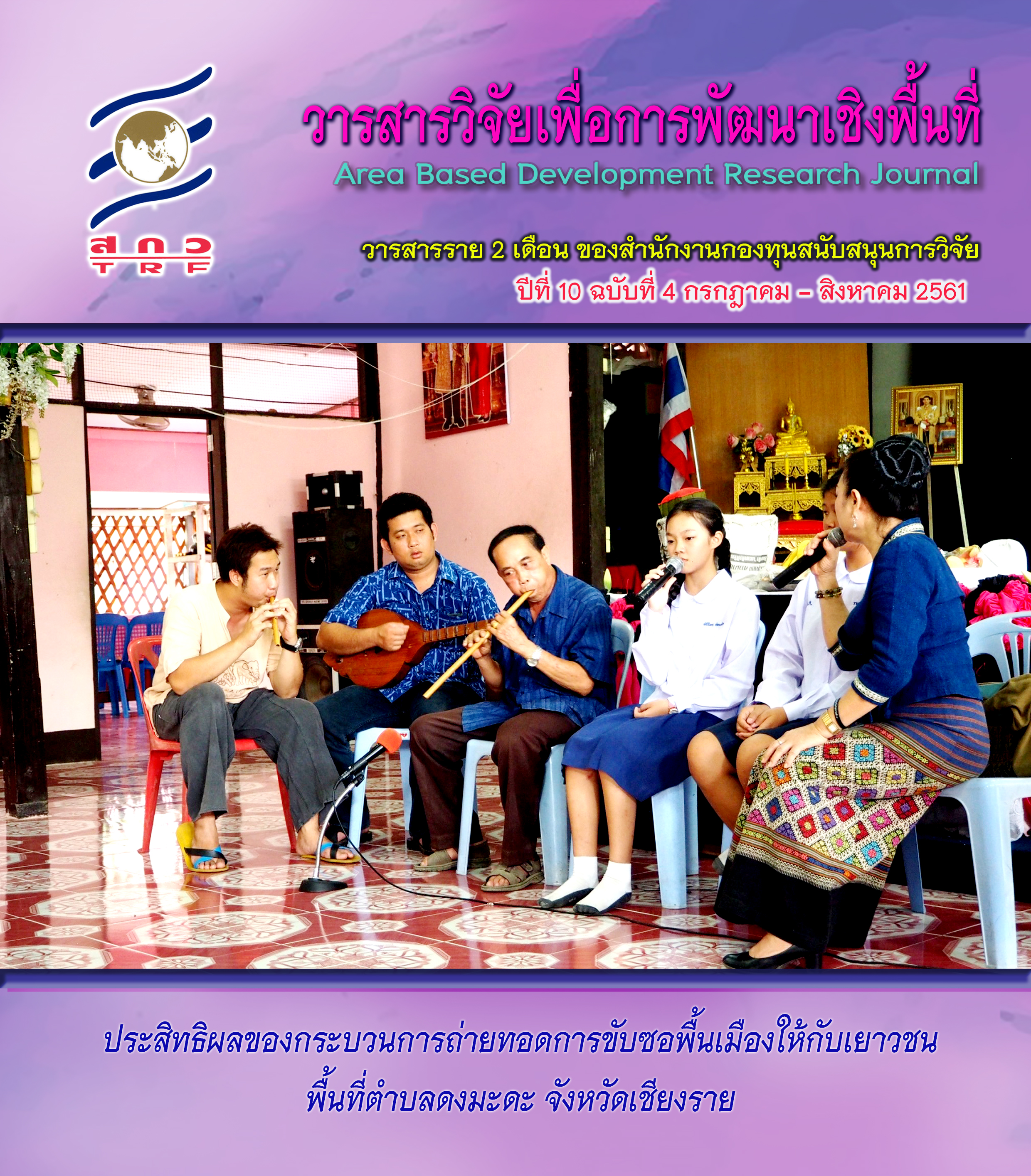การวิจัยเชิงปฏิบัติการโดยใช้แนวคิดการประเมินชุมชนแบบมีส่วนร่วมเพื่อสร้างความเข้มแข็งกลุ่มอาชีพสานเข่งปลาทูบ้านสันจกปก จังหวัดพะเยา
Main Article Content
Abstract
This research is the combination of action research and the concept of participatory rural appraisal. It aims to empower the community-based producer working group of basket weaving in Ban San Chok Pok, Dok Khamtai Sub-district, Dok Khamtai District, Phayao, to help them develop their products according to the market demand, and to help them bring their developed products to the market. The production of “Kheng” is local wisdom which has been passed down from one generation to one generation for more than 40 years. The empowerment process was done through the actions on product development, marketing, and management during February 2017-January 2018. Fifteen people, who mostly are the elderly people, were interested to join the group. The empowerment in turn led them to earn more living wage approximately 1,000-2,000 Baht per month. Four key factors: action leadership, active followership, allies, and government and private sectors, influence their success. The empowerment process consists of inspiring and encouraging all group members, evaluating the group’s potentiality, managing the group, being eager for bringing
the group to meet the success, and achieving the ultimate aims. To help them develop new products, a variety of approaches were used to encourage the group members to have personal development in creating basket weaving which has various patterns and styles and is more valuable and more modern. On-line and off-line marketing, brand building, and lively presenting such as model and fasion show were used to help them bring their developed products to the market.
Article Details
Area Based Development Research Journal values copyright protection and licensing to safeguard author rights and facilitate the appropriate dissemination of research. Our policies ensure openness, accessibility, and attribution. Authors retain copyright ownership, and articles are published under a Creative Commons Attribution License (CC BY), allowing sharing, adaptation, and proper attribution. Authors have the freedom to publish under the CC BY license, granting broad reuse and distribution permissions. The journal supports posting articles on third-party repositories, adhering to institutional and funding restrictions. Author guidelines detail copyright and licensing requirements, empowering authors with knowledge about their rights and responsibilities. These policies cultivate an environment of collaboration, openness, and responsible sharing, benefiting authors and the research community while honoring intellectual property rights.


